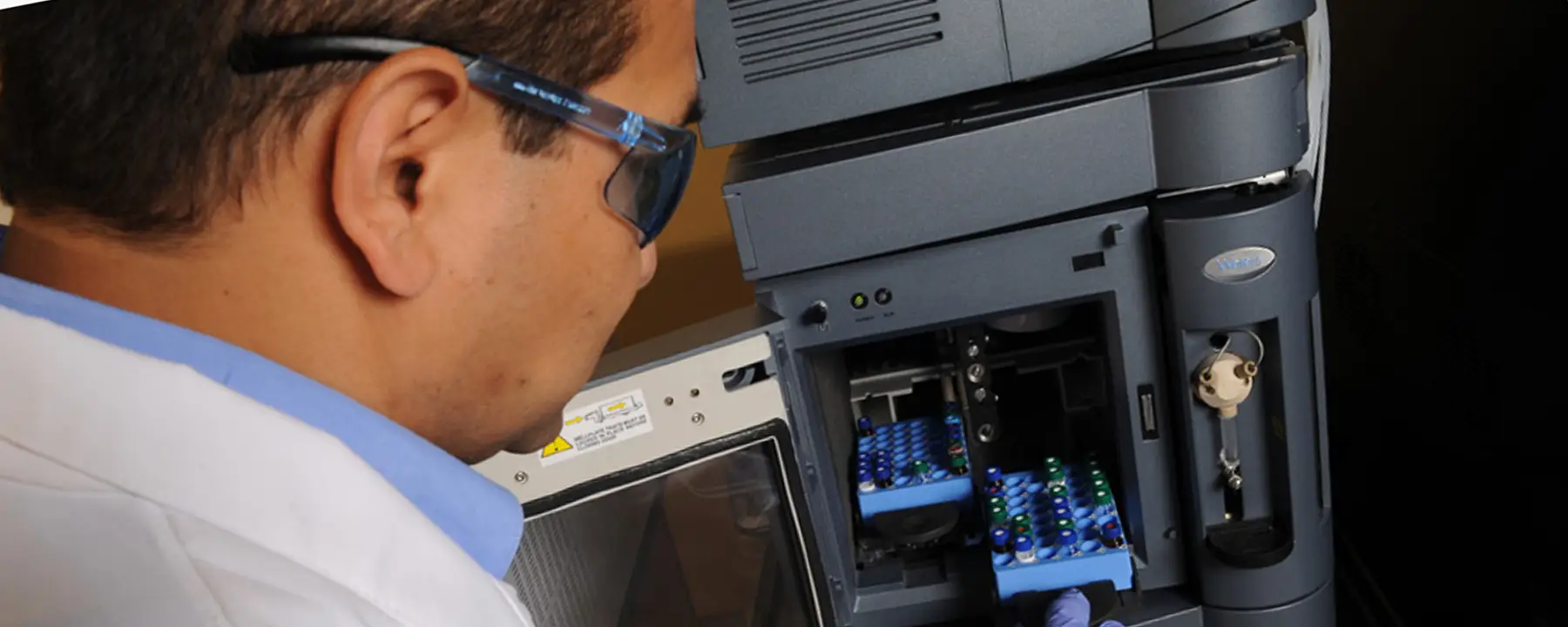Increasing capacity, establishing standards, and conducting training in metabolomics
Metabolomics involves the analysis of the low molecular weight complement of cells, tissues, or biological fluids, and enables researchers to profile the biochemistry of an individual or system. The approach reveals increases or decreases in specific metabolites associated with the onset, progression, or stage of disease, as well as exposure or response to treatment. These metabolomics biomarkers can also be key to the identification of druggable targets.
Recognizing the promise of metabolomics and its applicability in clinical and translational research, in 2012 the NIH Common Fund launched an effort aimed at providing the infrastructure and training to increase the United States’ capacity for metabolomics research. Since 2004, RTI scientists had been building laboratory capacity for metabolomics research and collaborating with basic, translational, and clinical investigations to reveal biomarkers and gain mechanistic insights related to the onset, progression, or stage of disease.
One of Six U.S. Centers at the Cutting Edge of Metabolomics Research
Funded by the NIH Common Fund, the NIH Eastern Regional Comprehensive Metabolomics Research Core at RTI (RTI RCMRC) is one of six centers funded in the United States to increase capacity, establish standards, train the next generation of metabolomics scientists, and promote the use of metabolomics through cutting-edge research. We also hold a contract with the NIH Common Fund to synthesize metabolite standards for use in validation of new methods or of biomarker discoveries.
Our senior scientists and skilled professional staff work closely with our collaborators to design studies, determine analytical and biological metadata requirements, and determine the best analytical approaches to address the problem. Our well-equipped facility is designed to facilitate quantitative targeted and broad-spectrum metabolomics analyses using chromatography-coupled mass spectrometry and NMR spectroscopy.
By applying statistical and multivariate tools, we identify metabolites that correlate with the study phenotypes. In addition, our expert biochemists interpret metabolic perturbations in the context of biochemical pathways.
Sharing Knowledge to Enable Discovery, Synthesis, and Application of Metabolomics Expertise
The RTI RCMRC is comprised of chemists, biochemists, statisticians, biostatisticians, and micro- and molecular biologists with experience in cancer and immunology, infectious disease, obesity, diabetes, kidney disease, natural products, maternal and child health, mental health, and cardiovascular disease. Through the RTI RCMRC pilot and feasibility program, we have established collaborations with over 150 researchers at more than 30 organizations.
In addition, our metabolomics scientists conduct research with researchers in the North Carolina Translational & Clinical Sciences (NCTraCS) Institute at the University of North Carolina at Chapel Hill and with scientists in the Center for Human Health and the Environment at North Carolina State University. Together, we work to discover biomarkers, synthesize metabolite standards, determine characteristics of exposure, and lead and receive training in metabolomics research.
Using our combination of expertise, instrumentation, and collaboration, the RTI RCMRC is continually seeking to maximize the potential of metabolomics both now and into the future, and welcomes opportunities to form new collaborations.
- National Institutes of Health (NIH) Common Fund

